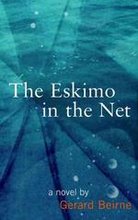Pollacks, Woodpeckers and Imaginary Selves

The thing is, we talk about writing as though it was an entity on its own. There’s the business of getting up each day, living out our lives, being partial to others’. There’s that war or that famine over in that part of the world or there’s my war and my famine. There’s the clothes we fit into and there’s the question of global warming. They thought they had discovered a whole bunch of previously unknown Pollacks, and then a mathematical model based on fractals and the displacement of paint on his canvases showed them to be the work of someone else. There’s that baby crying in another room and there’s an extinct woodpecker who may or may not have reappeared. Then there’s plot, characters, setting and, yes, theme - the war, the famine, extinction if we wish.
Writing is rooted in self. Even if we say that the distinction between writing what is called literature and writing for entertainment is that literature focuses more on character and entertainment writing focuses more on plot/action, and if we were to say that, it would not be a bad thing at all, but even then writing is rooted in self albeit a shallow one in the latter form. Kundera talks about characters as being ‘imaginary selves’. We write about these selves for pleasure and for revelation. We read in the same manner.
We cannot get bogged down in issues, arguments or opinions although many do. And so we discuss the nuts and bolts. Do a Strunk and White with ‘Revisions, an Introduction and a Chapter on Writing’. If at all possible, we will do a series of once off exercises akin to a yearly visit to a gym wearing overalls and steel tipped toes.
The self, like ‘writing’ is a lonely entity. The self too likes to follow some accepted rules of grammar and punctuation. But the self of course is nothing like this, and is no more an individual entity than the chromosomes which make it up. Writing stands no more on its own than one of those Pollacks or one of those not Pollacks. Letters, drops of paint, fractal patterns. “What happened in 1916?” John Keeble asked during one writer’s workshop. Paul Leathers gave the answer I should have, The Irish Civil War, and the rest of the group gave equally factual replies. John was after Dadaism, but in a sense did not all of our individual responses acknowledge this? A lot of things happened in 1916. Tristan Tzara attempted to pick up some of the pieces, set them down.
The historical development of writing form is a paltry skeleton of our own development as a species. More than any other revelation, it reveals our limitations. We don’t even know how to talk about it. Our very language prevents us.
The book needs a shelf to rest on and walls for protection. It needs ink and it needs paper. It needs the trees and as such it needs the earth. It needs the nourishment of all of the dead who have helped revitalize the soil. The thing is we talk about writing when in truth we need to live it. We can’t write about our death until it’s too late.









